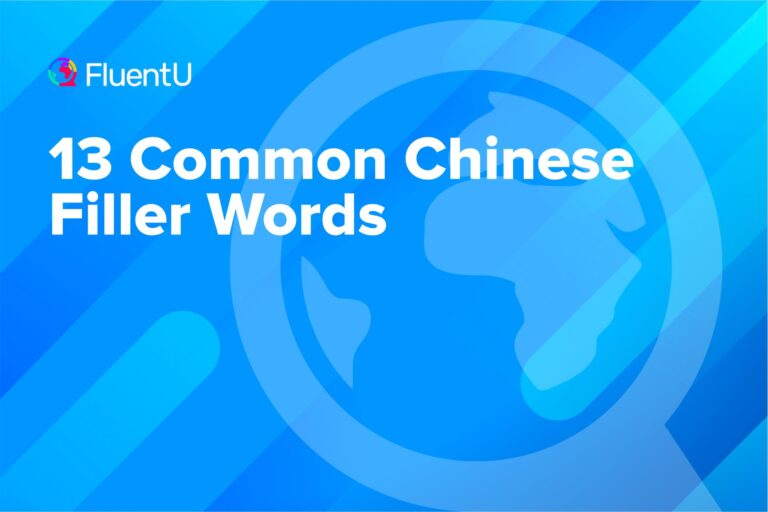Contents
- 1. 人穷志不穷 (rén qióng zhì bù qióng)
- 2. 身正不怕影子斜 (shēn zhèng bú pà yǐng zi xié)
- 3. 求人不如求己 (qiú rén bù rú qiú jǐ)
- 4. 有眼不识泰山 (yǒu yǎn bù shí tài shān)
- 5. 驴唇不对马嘴 (lǘ chún bú duì mǎ zuǐ)
- 6. 饱带饥粮,晴带雨伞 (bǎo dài jī liáng,qíng dài yǔ sǎn)
- 7. 老乡见老乡,两眼泪汪汪 (lǎo xiāng jiàn lǎo xiāng,liǎng yǎn lèi wāng wāng)
- 8. 心有余力不足 (xīn yǒu yú lì bù zú)
- 9. 三百六十行,行行出状元 (sān bǎi liù shí háng,háng hángchū zhuàng yuan)
- 10. 不怕山高,就怕脚软 (bú pà shān gāo,jiù pà jiǎo ruǎn)
- 11. 人不可貌相,海水不可斗量 (rén bù kě mào xiāng ,hǎi shuǐ bù kě dǒu liáng)
- 12. 夏虫不可语冰 (xià chóng bù kě yù bīng)
- 13. 眼不见心不烦 (yǎn bú jiàn xīn bù fán)
- 14. 吃一堑长一智 (chī yí qiàn cháng yí zhì)
- 15. 远水难救近火 (yuǎn shuǐ nán jiù jìn huǒ)
- 16. 远亲不如近邻 (yuǎn qīn bù rú jìn lín)
- 17. 百闻不如一见 (bǎi wén bù rú yí jiàn)
- 18. 若要人不知,除非己莫为 (ruò yào rén bù zhī,chú fēi jǐ mò wéi)
- 19. 吉人自有天相 (jí rén zì yǒu tiān xiāng)
- 20. 英雄所见略同 (yīng xióng suǒ jiàn lüè tóng)
- 21. 家丑不可外扬 (jiā chǒu bù kě wài yáng)
- 22. 一分耕耘,一分收获 (yì fēn gēng yún, yì fēn shōu huò)
- 23. 有志者事竟成 (yǒu zhì zhě shì jìng chéng)
- 24. 瞎猫碰上死耗子 (xiā māo pèng shàng sǐ hào zi)
- 25. 恭敬不如从命 (gōng jìng bù rú cóng mìng)
- 26. 事实胜于雄辩 (shì shí shèng yú xióng biàn)
- 27. 一山不容二虎 (yì shān bù róng èr hǔ)
- 28. 好记性不如烂笔头 (hǎo jì xìng bù rú làn bǐ tóu)
- 29. 不怕官只怕管 (bú pà guān zhī pà guǎn)
- 30. 风水轮流转 (fēng shuǐ lún liú zhuǎn)
- 31. 患难见真情 (huàn nàn jiàn zhēn qíng)
- 32. 万事开头难 (wàn shì kāi tóu nán)
- 33. 少壮不努力,老大徒伤悲 (shào zhuàng bù nǔ lì, lǎo dà tú shāng bēi)
- 34. 不见兔子不撒鹰 (bú jiàn tù zi bù sā yīng)
- 35. 世上无难事,只怕有心人 (shì shàng wú nán shì ,zhǐ pà yǒu xīn rén)
- 36. 一波未平,一波又起 (yì bō wèi píng,yì bō yòu qǐ)
- 37. 人无远虑,必有近忧 (rén wú yuǎn lǜ,bì yǒu jìn yōu)
- 38. 八字没一撇 (bā zì méi yì piē)
- 39. 先下手为强 (xiān xià shǒu wéi qiáng)
- 40. 天高皇帝远 (tiān gāo huáng dì yuǎn)
- 41. 高处不胜寒 (gāo chù bú shèng hán)
- 42. 无风不起浪 (wú fēng bù qǐ làng)
- 43. 天无绝人之路 (tiān wú jué rén zhī lù)
- 44. 不能则学,不知则问 (bù néng zé xué, bù zhī zé wèn)
- 45. 挂羊头卖狗肉 (guà yáng tóu mài gǒu ròu)
- 46. 井水不犯河水 (jǐng shuǐ bú fàn hé shuǐ)
- 47. 说曹操曹操到 (shuō cáo cāo cáo cāo dào)
- 48. 可望不可及 (kě wàng bù kě jí)
- 49. 常赌无赢家 (cháng dǔ wú yíng jiā)
- 50. 化干戈为玉帛 (huà gān gē wéi yù bó)
50 Chinese Proverbs to Express Yourself like Natives Do

Whether you’re a beginner in Mandarin Chinese or have been studying it for a long time, learning Chinese proverbs is key to truly mastering the language.
Below you will find 50 concise Mandarin Chinese proverbs to help you not only improve your vocabulary, but also give you deeper insight into Chinese culture and mentality.
Download: This blog post is available as a convenient and portable PDF that you can take anywhere. Click here to get a copy. (Download)
1. 人穷志不穷 (rén qióng zhì bù qióng)
English translation: “People are poor and their ambitions are endless.”
People do not lose their ambition even if they are in poverty.
2. 身正不怕影子斜 (shēn zhèng bú pà yǐng zi xié)
English translation: “If you stand straight, do not fear a crooked shadow.”
As long as you do things correctly and well, there is nothing to be afraid of.
3. 求人不如求己 (qiú rén bù rú qiú jǐ)
English translation: “Self-help is better than help from others.”
It’s better to do things for yourself rather than begging others to do them for you.
4. 有眼不识泰山 (yǒu yǎn bù shí tài shān)
English translation: “To have eyes but fail to recognize Tai Shan.”
This is used to describe someone who is too ignorant to identify an important or skilled person such as Tai Shan, who was a famous carpenter in ancient China.
5. 驴唇不对马嘴 (lǘ chún bú duì mǎ zuǐ)
English translation: “A donkey’s lips do not match a horse’s mouth.”
This is similar to “a square peg cannot fit into a round hole.” It can also be used to describe something that is beside the point.
6. 饱带饥粮,晴带雨伞 (bǎo dài jī liáng,qíng dài yǔ sǎn)
English translation: “When you are full, bring food. When it is sunny, bring an umbrella.”
Always plan ahead.
7. 老乡见老乡,两眼泪汪汪 (lǎo xiāng jiàn lǎo xiāng,liǎng yǎn lèi wāng wāng)
English translation: “When fellow villagers see each other, they both have tears in their eyes.”
When you travel and meet someone who’s from your hometown, you will have an instant bond because of your shared experience.
8. 心有余力不足 (xīn yǒu yú lì bù zú)
English translation: “The spirit is willing, but the flesh is weak.”
This can be used when you are willing but unable to do something.
9. 三百六十行,行行出状元 (sān bǎi liù shí háng,háng hángchū zhuàng yuan)
English translation: “Three hundred sixty lines, and every line comes out a champion.”
One can become successful in any industry.
10. 不怕山高,就怕脚软 (bú pà shān gāo,jiù pà jiǎo ruǎn)
English translation: “You’re not afraid of high mountains, you are afraid of weak feet.”
This is meant to be an encouraging proverb. It is a reminder that the obstacle itself is not as scary as your own limitations.
11. 人不可貌相,海水不可斗量 (rén bù kě mào xiāng ,hǎi shuǐ bù kě dǒu liáng)
English translation: “People cannot be judged by their appearance, just as the sea cannot be measured.”
This is equivalent to “do not judge a book by its cover.”
12. 夏虫不可语冰 (xià chóng bù kě yù bīng)
English translation: “You cannot talk about ice with a summer insect.”
In other words, time limits people’s knowledge.
13. 眼不见心不烦 (yǎn bú jiàn xīn bù fán)
English translation: “Out of sight, out of mind.”
This means that people don’t worry about things that aren’t right in front of them.
14. 吃一堑长一智 (chī yí qiàn cháng yí zhì)
English translation: “Fall in the moat and you’ll be wiser next time.”
No pain, no gain.
15. 远水难救近火 (yuǎn shuǐ nán jiù jìn huǒ)
English translation: “Far-away water does not put out a nearby fire.”
Someone who is far away or imaginary cannot help you through difficulties.
16. 远亲不如近邻 (yuǎn qīn bù rú jìn lín)
English translation: “Distant relatives are not as good as close neighbors.”
This proverb is usually connected to the previous one and carries the same meaning.
17. 百闻不如一见 (bǎi wén bù rú yí jiàn)
English translation: “Seeing once is better than hearing a hundred times.”
Seeing is believing.
18. 若要人不知,除非己莫为 (ruò yào rén bù zhī,chú fēi jǐ mò wéi)
English translation: “If you don’t want anyone to know what you’ve done, it is better to not have done it in the first place.”
Don’t do something you wouldn’t want others to find out about.
19. 吉人自有天相 (jí rén zì yǒu tiān xiāng)
English translation: “Heaven helps the worthy.”
Heaven helps those who help themselves.
20. 英雄所见略同 (yīng xióng suǒ jiàn lüè tóng)
English translation: “Heroes see the same thing.”
It can be used to praise two parties who agree with each other, or it can be used sarcastically. It is similar to “great minds think alike.”
21. 家丑不可外扬 (jiā chǒu bù kě wài yáng)
English translation: “Family shames must not be publicized.”
Problems that happen within the family should be resolved within the family and not made public.
22. 一分耕耘,一分收获 (yì fēn gēng yún, yì fēn shōu huò)
English translation: “You get what you put in.”
You reap what you sow. / No pain, no gain.
23. 有志者事竟成 (yǒu zhì zhě shì jìng chéng)
English translation: “A really determined person will find a solution.”
This is similar to “where there’s a will, there’s a way.”
24. 瞎猫碰上死耗子 (xiā māo pèng shàng sǐ hào zi)
English translation: “A blind cat meets a dead mouse.”
The closest English equivalent would be “to take a shot in the dark,” meaning you did something you weren’t sure about, but ended up succeeding in the end.
25. 恭敬不如从命 (gōng jìng bù rú cóng mìng)
English translation: “Respect is no substitute for obedience.”
This is used when accepting someone’s request or invitation.
26. 事实胜于雄辩 (shì shí shèng yú xióng biàn)
English translation: “Facts speak louder than words.”
Similar to “actions speak louder than words.”
27. 一山不容二虎 (yì shān bù róng èr hǔ)
English translation: “One mountain cannot contain two tigers.”
Two people are incompatible in some way, so conflict is inevitable when they are together.
28. 好记性不如烂笔头 (hǎo jì xìng bù rú làn bǐ tóu)
English translation: “A good memory is not as good as bad writing.”
The best way to remember something is to write it down.
29. 不怕官只怕管 (bú pà guān zhī pà guǎn)
English translation: “Don’t be afraid of officials, just be afraid of management.”
You should be afraid of the people directly in charge, and not the people working for them.
30. 风水轮流转 (fēng shuǐ lún liú zhuǎn)
English translation: “Feng shui turns.”
Feng shui (literally “wind-water”) is about balancing energy to create harmony. In this case, “feng shui turns” means that your luck is always changing. If you’re unlucky now, it doesn’t mean you will be that way forever, and vice versa.
31. 患难见真情 (huàn nàn jiàn zhēn qíng)
English translation: “Adversity sees the truth.”
Only through adversity can one see one’s best friend. In other words, “a friend in need is a friend indeed.”
32. 万事开头难 (wàn shì kāi tóu nán)
English translation: “The beginning of everything is difficult.”
Just as it translates: beginnings are difficult!
33. 少壮不努力,老大徒伤悲 (shào zhuàng bù nǔ lì, lǎo dà tú shāng bēi)
English translation: “Laziness in youth spells regret in old age.”
If you don’t take advantage of your youth and work hard, you will regret it. Don’t waste time.
34. 不见兔子不撒鹰 (bú jiàn tù zi bù sā yīng)
English translation: “No rabbits, no eagles.”
Don’t loose the falcon until you see the hare.
35. 世上无难事,只怕有心人 (shì shàng wú nán shì ,zhǐ pà yǒu xīn rén)
English translation: “Nothing in the world is difficult to those who are determined enough.”
Another proverb about hard work, this one is similar to the phrase “it’s dogged as does it.” Determination brings success; nothing is impossible if you’re willing to work for it. It is also similar to “where there’s a will, there’s a way.”
36. 一波未平,一波又起 (yì bō wèi píng,yì bō yòu qǐ)
English translation: “One wave is not flat, another wave is rising.”
Use this phrase when one problem has not been solved, but another problem has just occurred.
37. 人无远虑,必有近忧 (rén wú yuǎn lǜ,bì yǒu jìn yōu)
English translation: “People without farsightedness must have immediate worries.”
People who do not think long-term will not be able to handle issues that arise in the short term.
38. 八字没一撇 (bā zì méi yì piē)
English translation: “Character eight without a word.”
The literal translation of this is “There is not even the first stroke of the character 8 (八).” If no stroke has been written, then nothing has happened. This is similar to “things have not even begun to take shape” or “there is no sign of success yet.”
39. 先下手为强 (xiān xià shǒu wéi qiáng)
English translation: “The first to strike is stronger.”
Whoever acts first has the advantage.
40. 天高皇帝远 (tiān gāo huáng dì yuǎn)
English translation: “The sky is high and the emperor is far away.”
An alternative translation to this is “The emperor is as far away as the sky.” Essentially, this means that the authority figure is far away enough that the rules no longer apply.
41. 高处不胜寒 (gāo chù bú shèng hán)
English translation: “It’s cold in a high place.”
It’s lonely at the top.
42. 无风不起浪 (wú fēng bù qǐ làng)
English translation: “Without wind, there cannot be waves.”
You can’t have a rainbow without rain.
43. 天无绝人之路 (tiān wú jué rén zhī lù)
English translation: “Heaven never bars one’s way.”
This one is similar to #19 on this list, though based on what I’ve read, this can also loosely translate to “There’s always a way out.”
44. 不能则学,不知则问 (bù néng zé xué, bù zhī zé wèn)
English translation: “If you can’t, learn; if you don’t know, ask.”
If you don’t know how to do something, you should study it until you do. If you don’t know something, you should be humble and ask others for advice.
45. 挂羊头卖狗肉 (guà yáng tóu mài gǒu ròu)
English translation: “Hanging the sheep’s head and selling dog meat.”
If you’re passing one thing off as another, you’re deceiving people.
46. 井水不犯河水 (jǐng shuǐ bú fàn hé shuǐ)
English translation: “Well water does not interfere with river water.”
In other words, mind your own business.
47. 说曹操曹操到 (shuō cáo cāo cáo cāo dào)
English translation: “Speak of the devil and he will appear.”
This proverb is identical to the English translation.
48. 可望不可及 (kě wàng bù kě jí)
English translation: “In sight but out of reach.”
Use this to describe something—whether literal or metaphorical—that seems close but is just out of your reach.
49. 常赌无赢家 (cháng dǔ wú yíng jiā)
English translation: “No one wins when gambling often.”
Searching for this proverb online will yield a lot of interesting results. It is often used to dissuade people from gambling. Many people have also analyzed this proverb from a technical perspective: if you gamble, you’re likely winning money from friends or other people you know, and therefore no one wins in the end because you’re essentially taking from each other.
50. 化干戈为玉帛 (huà gān gē wéi yù bó)
English translation: “Turn fighters into jade and silk.”
Its English counterpart would be “enemies to friends.”
Now that you’ve learned these 50 Chinese proverbs, you can practice using them in conversation with your friends. Also look out for them in Chinese media, like TV shows, movies and songs.
You can even search each proverb and find videos that use them in-context using FluentU’s video dictionary.
FluentU takes authentic videos—like music videos, movie trailers, news and inspiring talks—and turns them into personalized language learning lessons.
You can try FluentU for free for 2 weeks. Check out the website or download the iOS app or Android app.
P.S. Click here to take advantage of our current sale! (Expires at the end of this month.)












